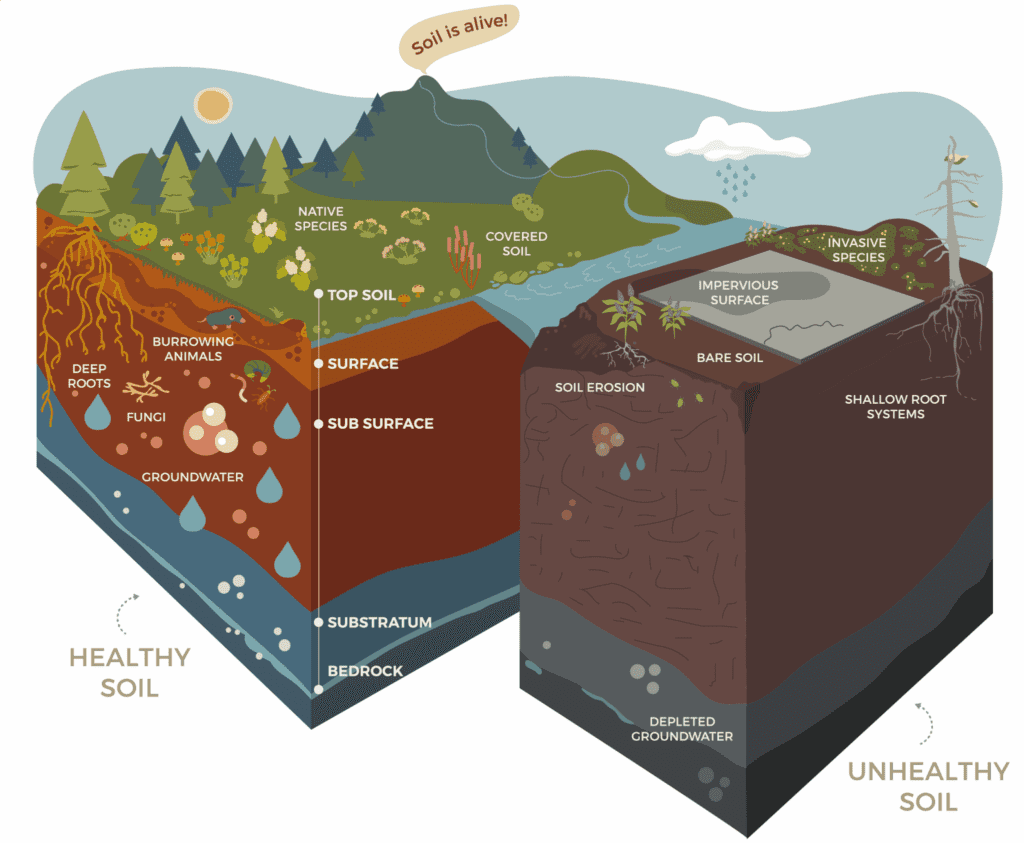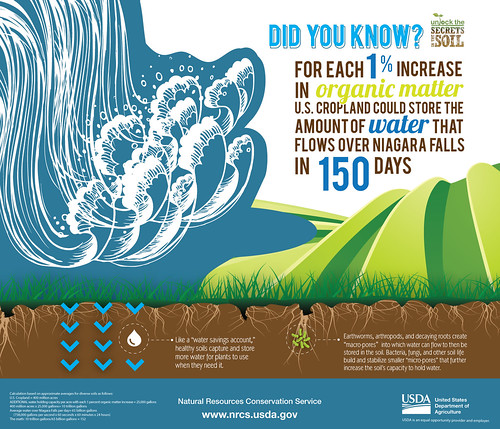Land Utilization
Our land is a valuable part of our environment. How we use it and care for it affects everything from the food we grow, to the water we drink, to the air we breathe.
Soil is not just dirt, it is a part of the biome, and composed of minerals, organic matter, air and water.
Healthy soils and sustainable land use:
-
- Create more nutritious food by storing and cycling nutrients.
-
- Protect our waterways by preventing erosion and leeching.
-
- Improve our health though greenspaces.
This is not just farmland, but also our lawns, our greenspaces, and our placement of infrastructure (roads, buildings, and factories) – all of which can have an impact on the land and soil.

Learn More and Get Involved
Individual Actions
Prevent erosion in your yard by planting plants, trees, and shrubs on and near slopes (not grass), cover bald spots in your yard, and utilizing mulch.
Create a WaterWise landscape to utilize less water and create a healthier land.
Compost your food waste, which can be used to increase soil health and prevent erosion.
Advocate for Change
Understand how healthy soil practices can improve profitability, reduce runoff, and increase water retention. All of which can improve our health, farmer’s livelihoods, and increase resiliency to extreme weather events.
Transitioning from traditional agriculture to a more diverse set of practices can have positive impacts for the farmer, the land, and the food. But it isn’t like flipping a switch. Learn how a transition occurs and the supports farmers need along the way.

